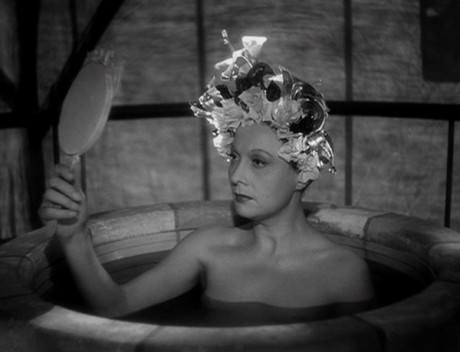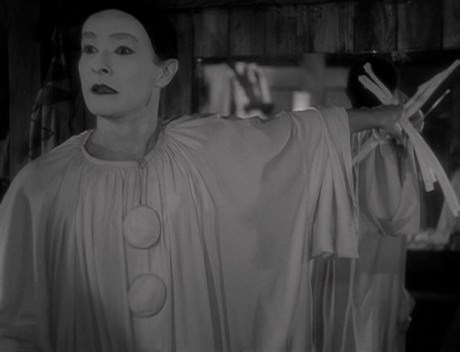“All the love in the world for Baptiste is mine, mine. No room for others. It is fate. It is written,” sobs his heart-broken lover, Nathalie (María Casarès). This scene appears more than halfway through the nearly three hour plus French film Children of Paradise, as it is quite touching. Now fully restored, this film, which has been compared to Gone with the Wind by film historians and is considered one of the best of French cinema is epic in direction and acting, but falls short in original story.

Jean-Baptiste Debureau (Jean-Louis Barrault) is a mime on the grand Boulevard of Crime, where thieves, prostitutes, murderers, and swindlers all congregate, jostle, and live for what they do best. It is here he encounters Caire Reine (Arletty), a lady of the evening who calls herself Garance. Garance is accused of stealing a man’s pocket watch, but because Baptiste sees the entire scenario from the stage, he rescues her from the police’s clutches when he acts out how the thievery occurred. Garance, in turn, pays Baptiste with a flower. He, of course, falls in love with her. As Garance is a popular woman of the streets, she is also loved by Frédérick Lemaître (Pierre Brasseur), an actor and Lacenaire (Marcel Herrand) and the Count Edouard de Montray (Louis Salou) who tells her, “I’d spill torrents of blood to give you a river of diamonds.” To which she replies, “I’d settle for less.” There is no one, it seems, who can take Garance away from what she cherishes the most; her freedom, though they each certainly try.
Poor Nathalie pines away for Baptiste as he stumbles behind Garance. In a theatre culture that depends so heavily on facial expressions and body movements, Nathalie can clearly see how much Baptiste loves another when they are performing on stage. So much so that she cries out, to the chagrin of the director, her father. Fines are incurred if the actors speak on what is supposed to be a silent stage. The first half of the film, aptly titled “The Boulevard of Crime” is all poetry and love while the second half, “The Man in White” is more tragic. Each part shows how these characters navigate the ills of love even as life gets in the way. Baptiste eventually has a child with Nathalie and Garance marries another.
The era in which this film was made was a treacherous one. The Nazis were occupying much of France and Europe and the filmmakers and crew had to shoot in two different locations for fear of retribution. Films at that time could not run past 90 minutes, which explains this film’s two parts. The fact that this movie was made at all is a miracle in itself.

This restored version is flawless, bestowing us the tormented faces of these lovers perfectly. Watching Baptiste and Garance ache for each other is even more breathtaking.
Children of Paradise is now playing at West End Cinema in Washington, D.C.
Running time: 190 minutes.
and watch the original trailer here.




